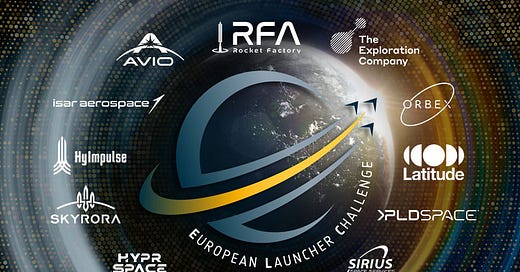Countries Draw Battle Lines Ahead of European Launch Challenge
In an op-ed published in the French newspaper Les Echos on 28 January, MaiaSpace CEO Yohann Leroy argued that “the European Launcher Challenge must not become a competition between states.” However, Leroy’s plea appears to have fallen on deaf ears, as countries rush to bolster their chosen champions with funding ahead of the launch of the bidding process next month. A prime example of this is the UK government's backing of Orbex with a £20 million investment after selecting it as its champion.
For context, the European Launcher Challenge was established following the ESA Council meeting in Seville in November 2023. The initiative aims to support the development of sovereign European launch capabilities, with current plans to provide €150 million to each successful bidder. The challenge is intended to serve as a catalyst for the emergence of a privately developed successor to the Ariane 6.
According to the Financial Times, the UK government hired accountancy firm PwC in October to assess…
Keep reading with a 7-day free trial
Subscribe to Europe in Space to keep reading this post and get 7 days of free access to the full post archives.





